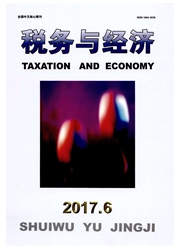

 中文摘要:
中文摘要:
在全球气候变化的背景下,碳排放治理问题已然成为国际社会关注的热点。欧盟无视发展中国家海运业发展的实际,单方面强制推行航海碳税政策,对我国国际海运相关行业的发展带来极大的挑战。欧盟征收航海碳税行为本身并不具有充分的合法性和合理性,其背后的真实目的值得推敲。对此,我国应制定有效的应对策略:一方面,要联合相同立场的国家,共同抵制欧盟航海碳税政策;另一方面,积极参与国际海运组织有关节能减排措施的谋划与制定;同时,加快建立国内航海碳排放交易机制,加大海运节能减排科研投入,控制船舶的大气污染物排放,加快海运服务转型和技术升级。要强化与国际社会在碳排放事务上的合作,展开良性互动,借此增强中国在碳排放问题上的话语权和影响力。
 英文摘要:
英文摘要:
In the context of global climate change, carbon emission governance has become a hot issue among international communities. EU ignores the real conditions of shipping industry of developing countries to unilateral- ly put carbon tax on maritime transport into practice, which brings challenges for the development of international maritime-related industries in China. It is not reasonable and legal for EU to levy carbon tax, and the real purpose behind is worth bearing close inspection. Therefore, China should make effective coping strategies: on the one hand, China should unite those countries with the same position to jointly resist EU policy of carbon tax on maritime transport; on the other hand, China needs to actively participate in the planning and formulation of measures of energy saving and emission reduction with international maritime organizations. Meanwhile, China should speed up the wheels of establishment of domestic maritime carbon emission exchange mechanism and increase research investment in ocean energy conservation and emission reduction. The central government still needs to control air pollutant emission of ships and accelerate the shipping service transformation and technologi- cal upgrading. China must strengthen the cooperation and expand positive interaction with international communi ties on matters of carbon emission so as to enhance the voice and influence of China on the issue of carbon emission.
 同期刊论文项目
同期刊论文项目
 同项目期刊论文
同项目期刊论文
 期刊信息
期刊信息
